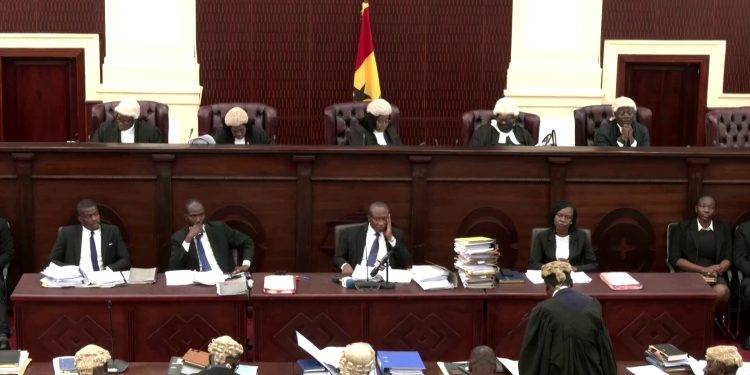Ghana’s Supreme Court will deliver a decisive ruling today on two lawsuits challenging the constitutionality of the controversial Human Sexual Rights and Family Values Bill, commonly referred to as the anti-LGBTQI bill. This highly anticipated judgment comes after months of heated national discourse and political polarization over the bill, which seeks to criminalize activities related to lesbian, gay, bisexual, transgender, queer, and intersex (LGBTQI) advocacy.
The bill has drawn sharp divisions within Ghanaian society, with proponents hailing it as a necessary measure to protect cultural and family values, while opponents argue it infringes on basic human rights.
Contentious Provisions and Public Reaction
The anti-LGBTQI bill proposes severe penalties for individuals promoting or funding LGBTQI-related activities and extends liability to those offering indirect support. Religious and traditional institutions have thrown their weight behind the bill, emphasizing the need to safeguard Ghana’s moral fabric against what they perceive as foreign influences.
Supporters argue that the legislation reinforces the nation’s cultural identity and family values, which they believe are under threat. “This bill is a necessary step to preserve our traditions and moral principles,†said a spokesperson for a coalition of religious groups advocating for its passage.
Conversely, human rights groups and civil society organizations have strongly opposed the bill, citing its potential to violate fundamental freedoms enshrined in Ghana’s Constitution. “This legislation undermines freedom of expression, equality before the law, and the right to association. It’s a step backward for our democracy,†said a representative of a prominent human rights organization.
Legal Challenge: Constitutionality in Question
Two lawsuits, filed by journalist and lawyer Richard Dela Sky and equality advocate Amanda Odioi, have brought the anti-LGBTQI bill under judicial scrutiny. The plaintiffs contend that the legislative process leading to the bill’s passage violated constitutional provisions.
Central to their argument is the claim that Parliament did not meet the required quorum, as stipulated in Articles 102 and 104 of the Constitution. These articles mandate a specific minimum number of members to be present for a vote to be valid. The plaintiffs allege that this threshold was not met, rendering the bill’s passage unconstitutional and void.
“The essence of parliamentary democracy lies in adherence to due process. Any deviation undermines the legitimacy of the laws passed,†stated Sky in a recent interview.
High Stakes for Ghana’s Legal and Human Rights Landscape
The Supreme Court’s judgment is poised to have far-reaching implications, not only for Ghana’s LGBTQI community but also for the broader discourse on human rights and legislative accountability in the country. Legal analysts note that the ruling could set a precedent for how constitutional challenges to parliamentary processes are addressed in the future.
For proponents of the bill, a favorable ruling would represent a significant victory in their efforts to uphold what they see as Ghana’s traditional values. However, for opponents, an unfavorable outcome could heighten concerns about the erosion of human rights protections in the country.
The international community is also closely watching the developments, as Ghana’s stance on LGBTQI rights has drawn global attention. Advocacy groups and foreign governments have urged Ghana to align its laws with international human rights standards, while others have emphasized the need to respect national sovereignty and cultural contexts.
Broader Implications
Beyond the immediate legal and social ramifications, the judgment is expected to influence Ghana’s political climate, especially as the country transitions to a new administration following the recent general elections. President-elect John Dramani Mahama has not publicly stated his stance on the bill, but his administration’s approach to LGBTQI issues will likely come under scrutiny.
Political commentators suggest that the outcome of the case could shape public discourse on governance, human rights, and the role of religion in policymaking. It may also serve as a litmus test for Ghana’s judiciary, reflecting its independence and commitment to upholding the Constitution.
A Pivotal Moment
As Ghanaians await the Supreme Court’s ruling, the case underscores the complex interplay between culture, law, and human rights in a rapidly evolving society. Whether the court upholds or strikes down the bill, its decision will undoubtedly leave a lasting impact on Ghana’s legal and social landscape.
The judgment is expected to be delivered later today, and all eyes are on the Supreme Court as the nation grapples with this defining moment in its history.




No comments yet
Be the first to share your thoughts!